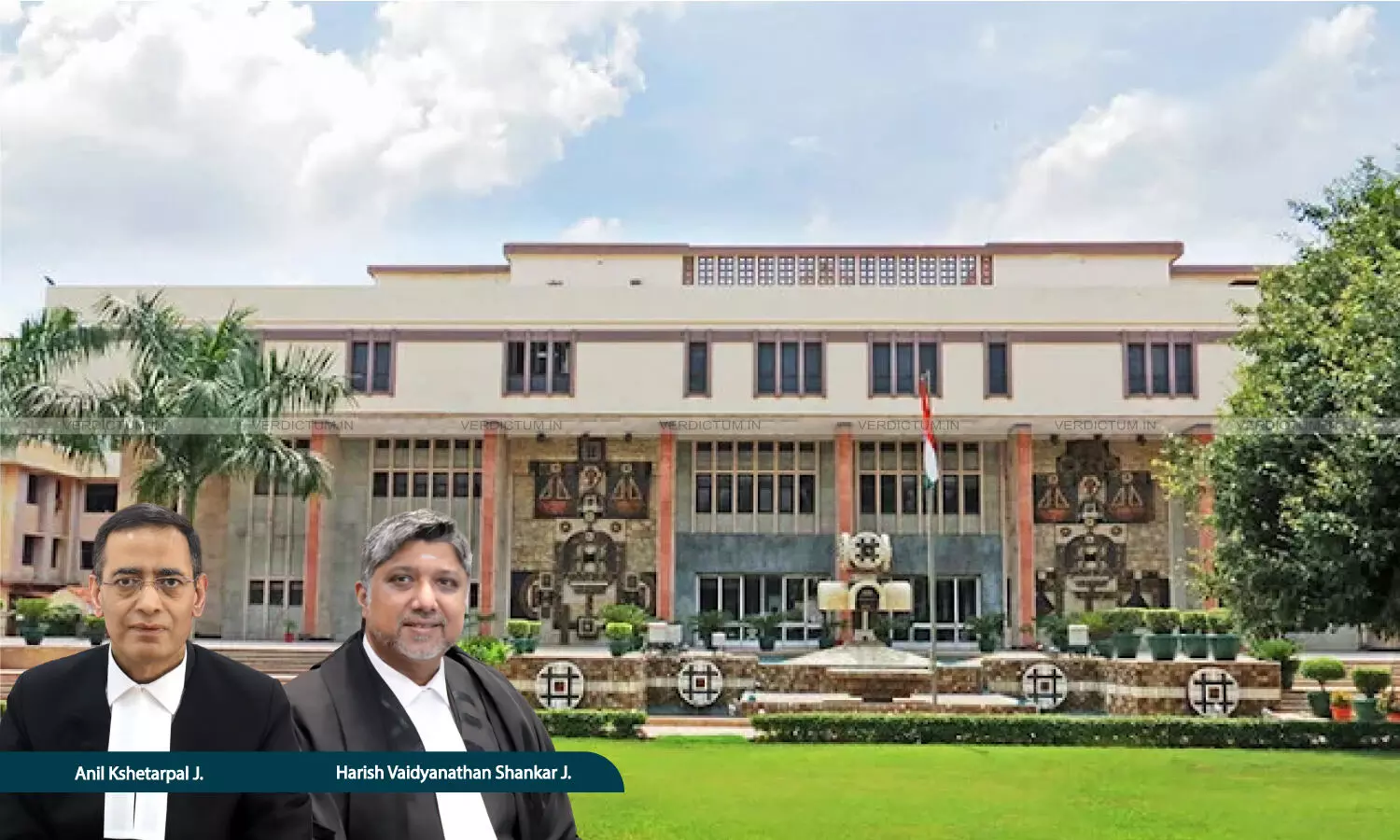
Justice Anil Kshetarpal and Justice Harish Vaidyanathan Shankar, Delhi High Court
CDRs, Tower Location Data Can Be Relevant Evidence To Establish or Disprove Adultery: Delhi High Court Upholds Family Court Directions
 |
|The Court held that in matrimonial disputes involving allegations of adultery, parties are entitled to seek call detail records, tower location data, hotel bookings, and other related evidence, provided the requests are narrowly tailored, relevant, and proportionate to the issue in controversy.
The Delhi High Court has upheld a Family Court’s decision permitting a wife to obtain her husband’s call detail records (CDRs), tower location data, and hotel booking details to substantiate her allegation of adultery.
The Court clarified that where adultery is alleged, parties are entitled to seek specific and relevant evidence, and such requests cannot be dismissed as a “roving or fishing inquiry” when properly circumscribed.
A Division Bench of Justice Anil Kshetrapal and Justice Harish Vaidyanathan Shankar observed: “In matrimonial disputes where adultery is alleged, courts have consistently held that proof may often be circumstantial, and that evidence of association, stay at hotels, or patterns of communication may constitute relevant circumstances. CDRs and tower location data, if appropriately circumscribed to a defined period, serve as corroborative material to either establish or negate the charge of adulterous association.”
Advocate Prateek Chaudhary appeared for the appellant, while Advocates Prashant Ghai and Prashant Singh represented the respondents.
Background
The case arose from a divorce petition filed by the wife under the Hindu Marriage Act, alleging that her husband maintained an illicit relationship with another woman. She sought to prove the allegation by obtaining CDRs, tower location data, and hotel booking details, along with specific bank statements and other financial records.
During the trial, she filed applications requesting production of her husband’s credit card transactions, hotel stay details, and call data records from January 2020 onwards.
The Family Court partly allowed her application, granting access to financial and travel records while rejecting demands for unrelated data like bulk WhatsApp chats, metadata, and social media details, terming those as “fishing inquiries.”
Aggrieved, the parties approached the High Court, leading to the present decision.
Court’s Observations
The Division Bench of the Delhi High Court proceeded question by question, making elaborate observations on each aspect of discovery sought by the wife, and the contentions raised by the respondent husband.
On the relevance of CDRs and tower location data, the Court held that in adultery cases, direct evidence is rare, and circumstantial evidence such as CDRs and tower data can provide corroborative support. It emphasised that requests limited to defined periods and specific persons are not roving inquiries but are directly relevant to the facts of the case. Accordingly, production of CDRs and tower location records was justified, subject to confidentiality safeguards like sealed cover filing.
On requests for hotel stay records, the Court ruled that when a spouse alleges that the other stayed at a particular hotel with the alleged partner, a request for booking records for that specific hotel and timeframe is legitimate. It was observed that such narrowly tailored requests cannot be branded as “fishing” because they go to the root of the adultery allegation. The Court therefore upheld the Family Court’s direction to produce hotel records.
On requests for bank statements and financial records, the Bench observed that financial records such as bank statements, ESOP details, and credit card transactions could have direct relevance when linked to specific allegations of expenditure, travel, or gifts exchanged between the husband and the alleged paramour. Since the wife’s application identified specific accounts and periods, the Court found the request proportionate and affirmed the Family Court’s order requiring disclosure of these records.
However, the Court refused the wife’s request for metadata, WhatsApp conversations, and unrelated social media data. It held that such demands were not supported by pleadings and amounted to speculative fishing inquiries. The Court reiterated that discovery under matrimonial law must remain tied to specific, pleaded allegations and cannot be used to indiscriminately invade privacy.
The Bench also addressed privacy concerns raised by the husband, noting that the right to privacy under Article 21 is not absolute. Where a spouse seeks specific evidence relevant to an allegation of adultery, the right to a fair trial and to substantiate one’s case may override privacy concerns, provided the request is narrowly tailored, confined to a limited timeframe, and safeguarded by confidentiality directions.
Conclusion
Dismissing the appeals, the High Court upheld the Family Court’s order allowing the wife to obtain specific evidence relevant to her allegations of adultery. It directed the SHO to produce the relevant call detail records (CDRs) and tower location data from January 2020 onwards, to be submitted in a sealed cover.
The Court also directed the husband to provide his financial records, including bank statements and credit card details, while instructing hotels to furnish booking and stay records for the specified periods.
At the same time, the Court clarified that requests for unrelated material, such as bulk social media data and other general records, would not be permitted as they amounted to speculative fishing inquiries.
Accordingly, the High Court disposed of the appeals along with all pending applications in line with the directions issued.
Cause Title: X v. Y (Neutral Citation: 2025:DHC:7474-DB)
Appearances
Appellant: Advocate Prateek Chaudhary
Respondents: Advocates Prashant Ghai and Prashant Singh